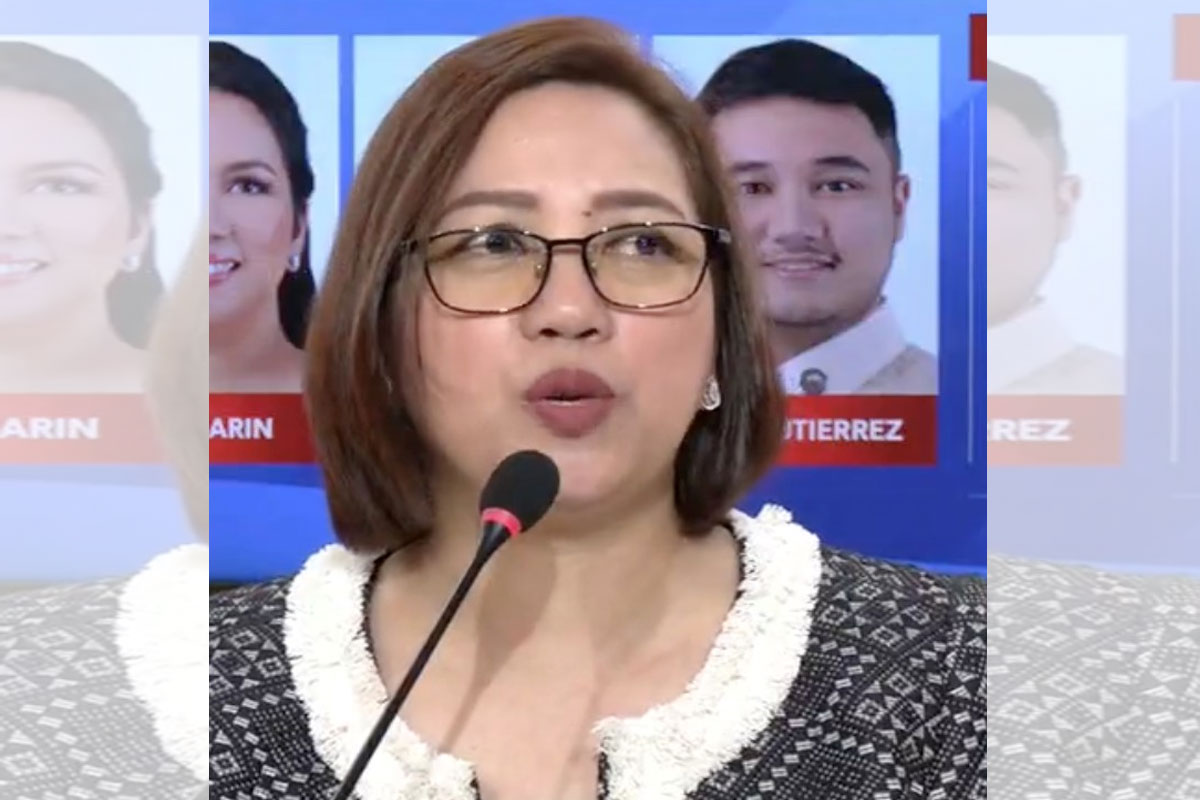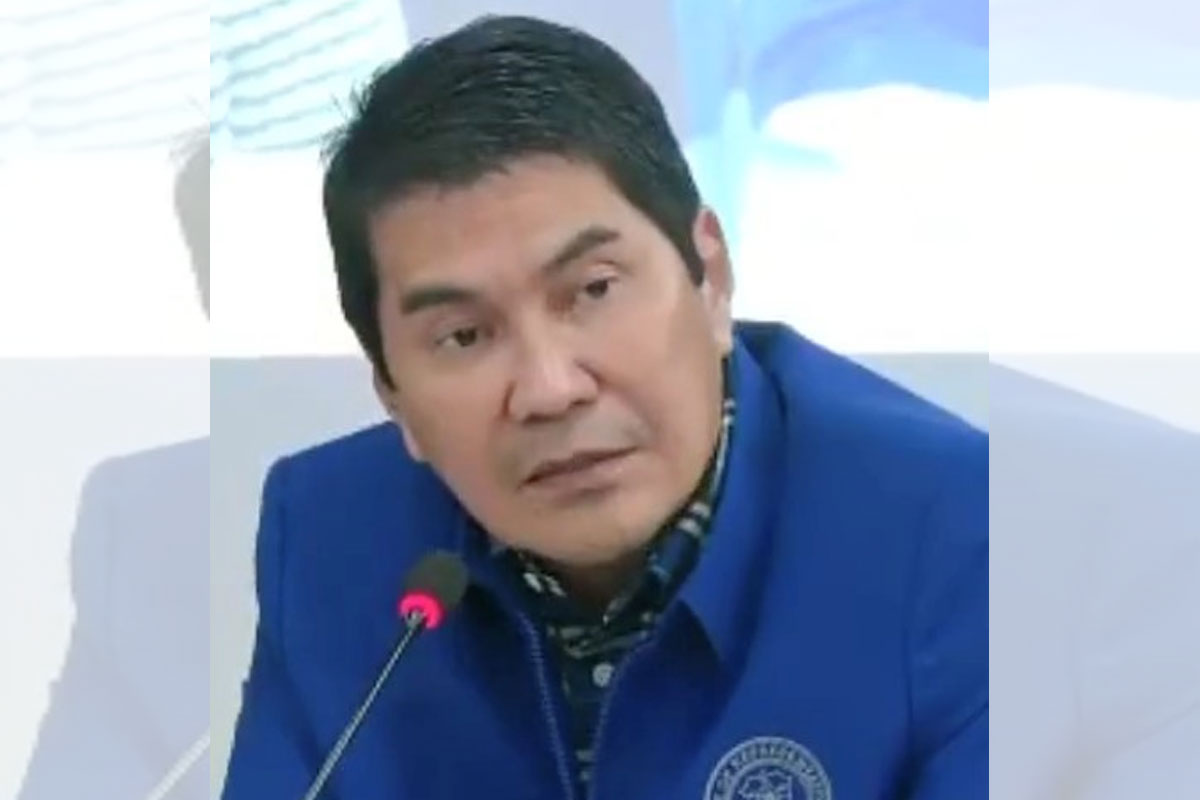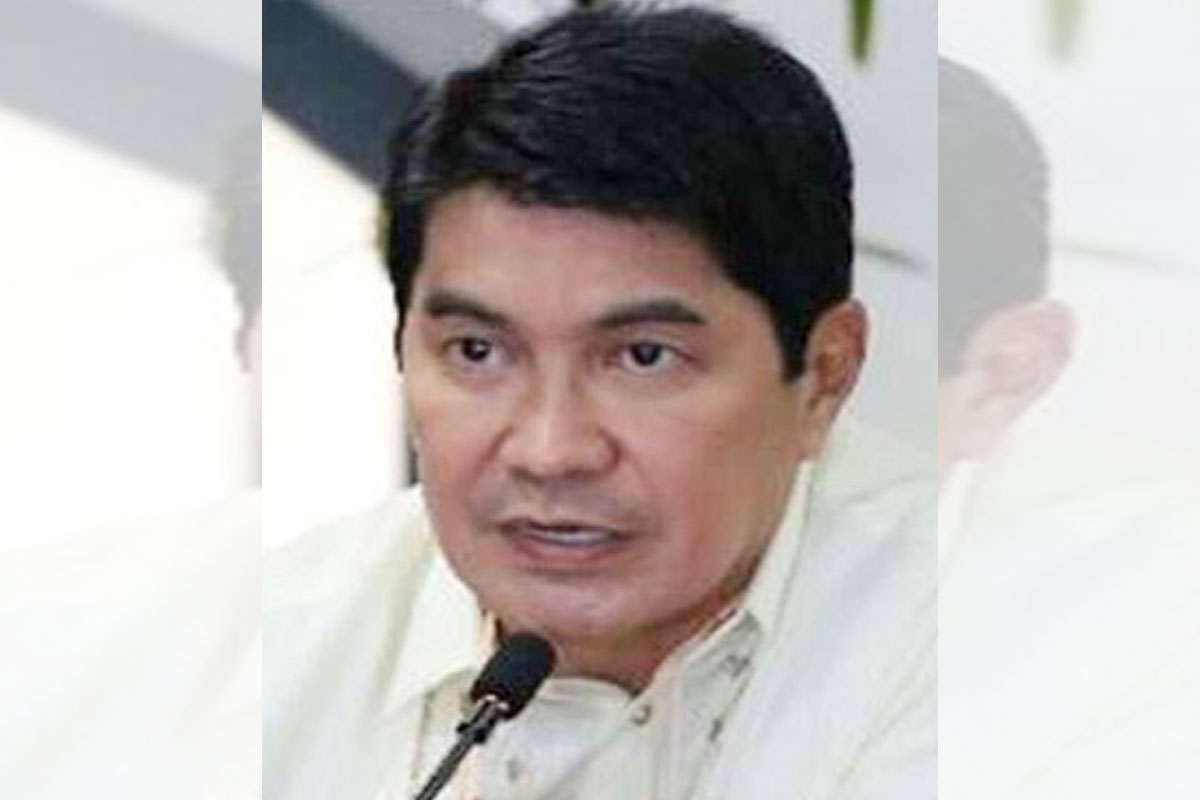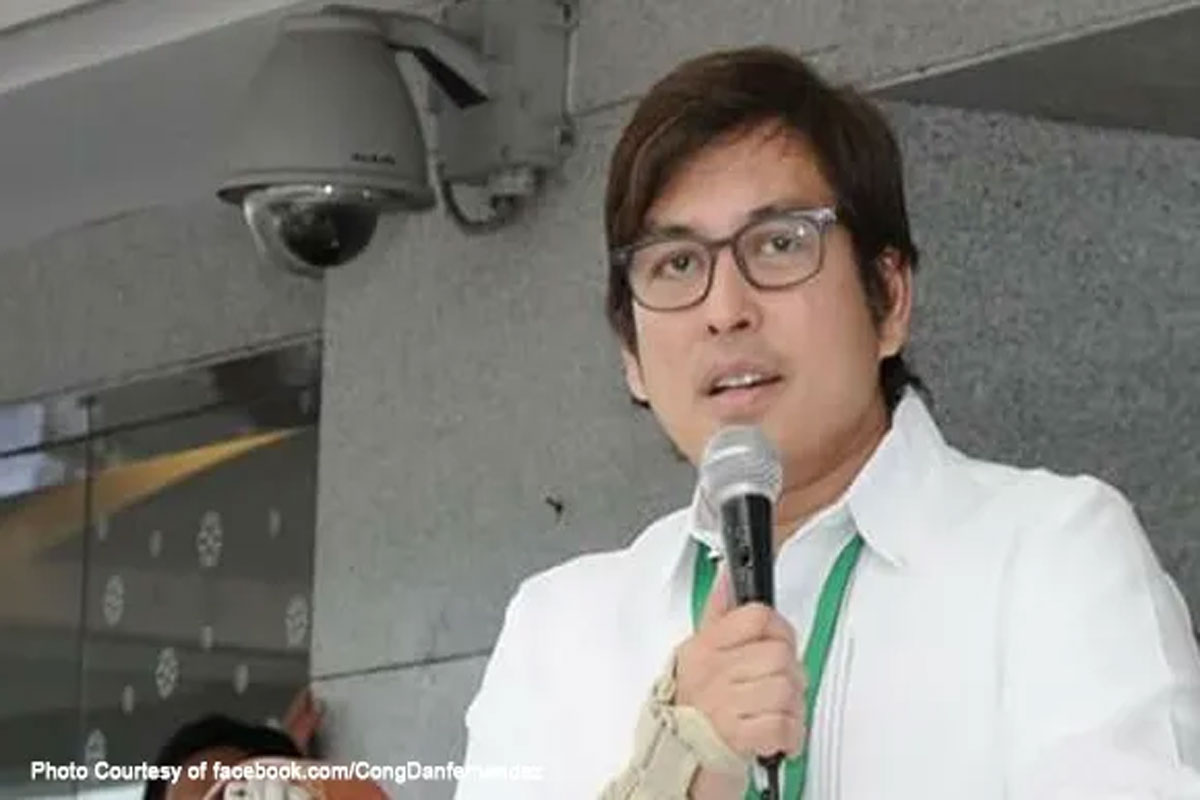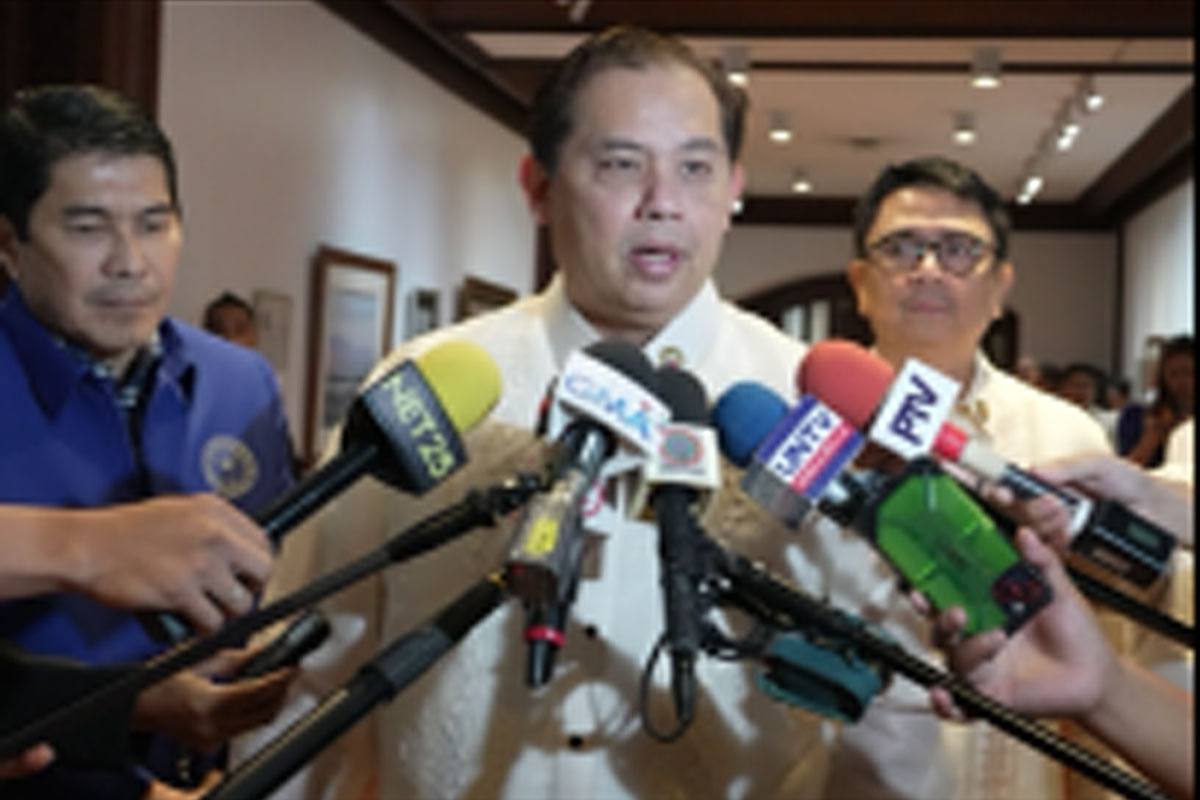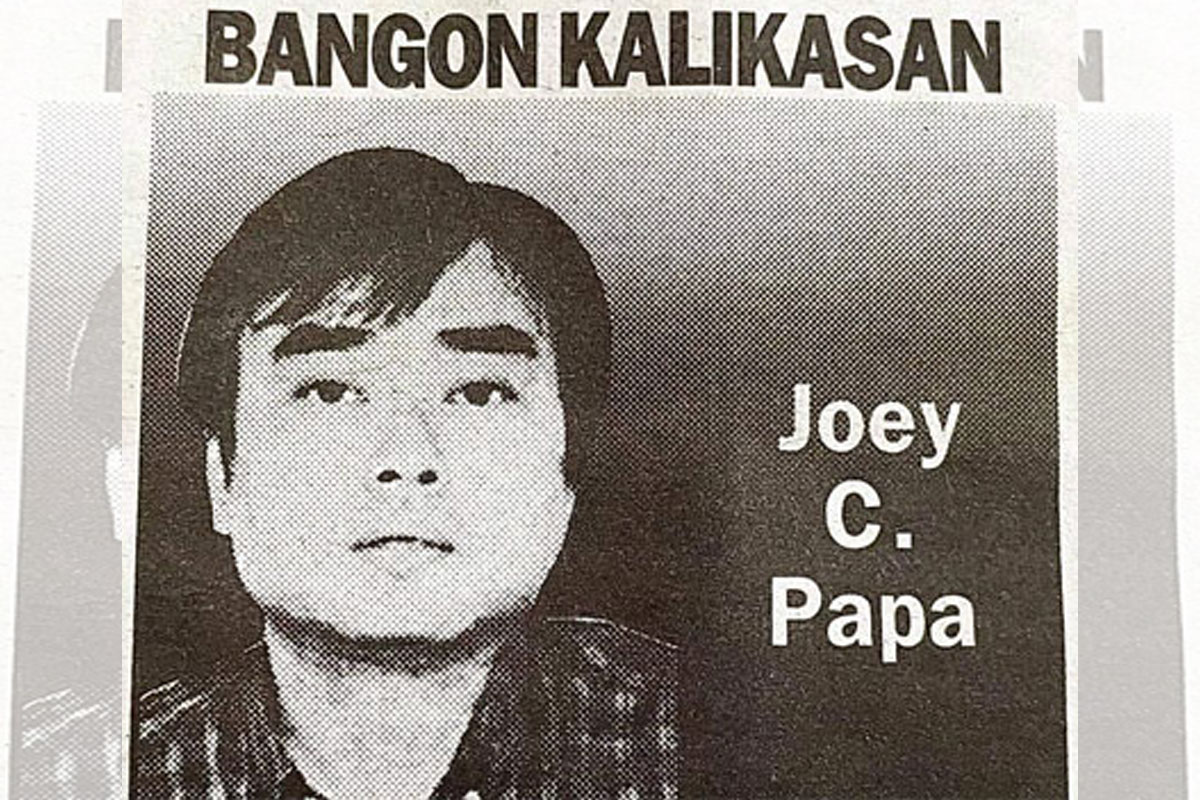
Don’t sell your votes, public told
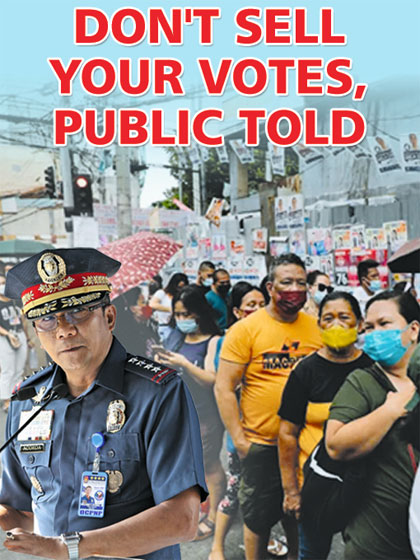 DEPARTMENT of Interior and Local Government (DILG) Secretary Benjamin C. Abalos Jr. and Philippine National Police (PNP) chief General Benjamin Acorda Jr. Saturday made a last-minute appeal to the public not to sell their votes in Barangay and Sangguniang Kabataan Elections (BSKE).
DEPARTMENT of Interior and Local Government (DILG) Secretary Benjamin C. Abalos Jr. and Philippine National Police (PNP) chief General Benjamin Acorda Jr. Saturday made a last-minute appeal to the public not to sell their votes in Barangay and Sangguniang Kabataan Elections (BSKE).
The top cop also appealed to all Filipinos to help the government stop vote-buying and vote-selling even as the force implemented a ‘money ban’ or carrying in public of more than P500,000 in small bills without any justifiable reasons at all ahead of the polls.
“I appeal to the media, civil society organizations and every concerned citizen to unite with us in the fight against vote-buying and vote-selling.
Kindly relay any information or evidence of such activities to the appropriate authorities. It is your civic duty to assist us in safeguarding the integrity of our elections,” the PNP chief said.
Sec. Abalos is also against using electronic payment platforms to buy votes. The DILG chief revealed there are growing concerns over unscrupulous politicians planning to exploit e-payment systems like GCash and Maya to engage in vote-buying schemes.
“Do not even think about it. We will run after you and make sure you are punished for cheating.
Candidates proven to have bought or will buy votes through e-payment platforms will be held accountable and we will work with Comelec to have them removed from office even if they win the count,” the DILG chief said. \
The DILG and PNP are fully supporting the Commission on Elections in its effort to have a peaceful and honest BSKE, specifically in stopping vote-buying and selling, enforcing the nationwide gun ban and employment of partisan armed groups and other violations of the Omnibus Election Code.
To arrest vote-buying/selling, the poll body has partnered with the DILG-PNP, the Department of Justice, the Department of Information and Communications and Technology, Banko Sentral ng Pilipinas, the Anti-Money Laundering Council and all other concerned government agencies.
The ‘whole-of-nation approach’ is being undertaken to stop the age-old practice of people selling their votes to moneyed politicians starting from supposedly the smallest government unit which is the barangay.
Officials said there is also a need to monitor GCash transactions to help fight vote-buying.
Apart from going after the so-called ‘money trail’ or the real source of the money being used to buy votes and implementing an impractical ‘money ban’ or the unjustifiable carrying in public of more than P500,000 in small bills before and during the polls, the government really has to monitor mobile wallet transactions.
During the last presidential and national elections, GCash, the mobile wallet used by some 55 million Filipinos, released a statement that it would “tighten” its user verification process to help fight vote-buying.
The company issued the statement amid reports that during the 2019 mid-term polls, digital wallets like GCash and PayMaya were used to buy votes.
Verified GCash account holders have higher transaction limits which allows them to keep and send larger amounts of money compared to non-verified users.
During the 2019 elections, the PNP seized some P12.2 million funds intended for vote-buying and selling.
The Police Regional Office 13 (PRO13) accounted for the biggest seizure with nearly P8 million confiscated from two mayoralty candidates.
Recovered from the compounds of the two candidates apart from the thousands of envelopes containing small bills ready for distribution to voters were sample ballots.
The National Capital Region Police Office (NCRPO) arrested 136 suspects in vote-buying and selling during the period while the Northern Mindanao police force seized around P1.230 million about to be used to buy votes.
‘Kontra-Bigay Complaint Centers’ have been established by the Comelec and the DILG-PNP to provide the public an avenue where they can report incidents of vote buying/selling.
Complaints can be forwarded to the assistance centers or Facebook, Instagram, TikTok and Twitter.
Acts prohibited during the period include the possession and distribution of money, cards, or campaign paraphernalia that have value and possession or transport of cash exceeding P500,000 five days before election day, among others.
Violators, once proven guilty, may be sentenced to at least one-year imprisonment or a maximum period of six years.



